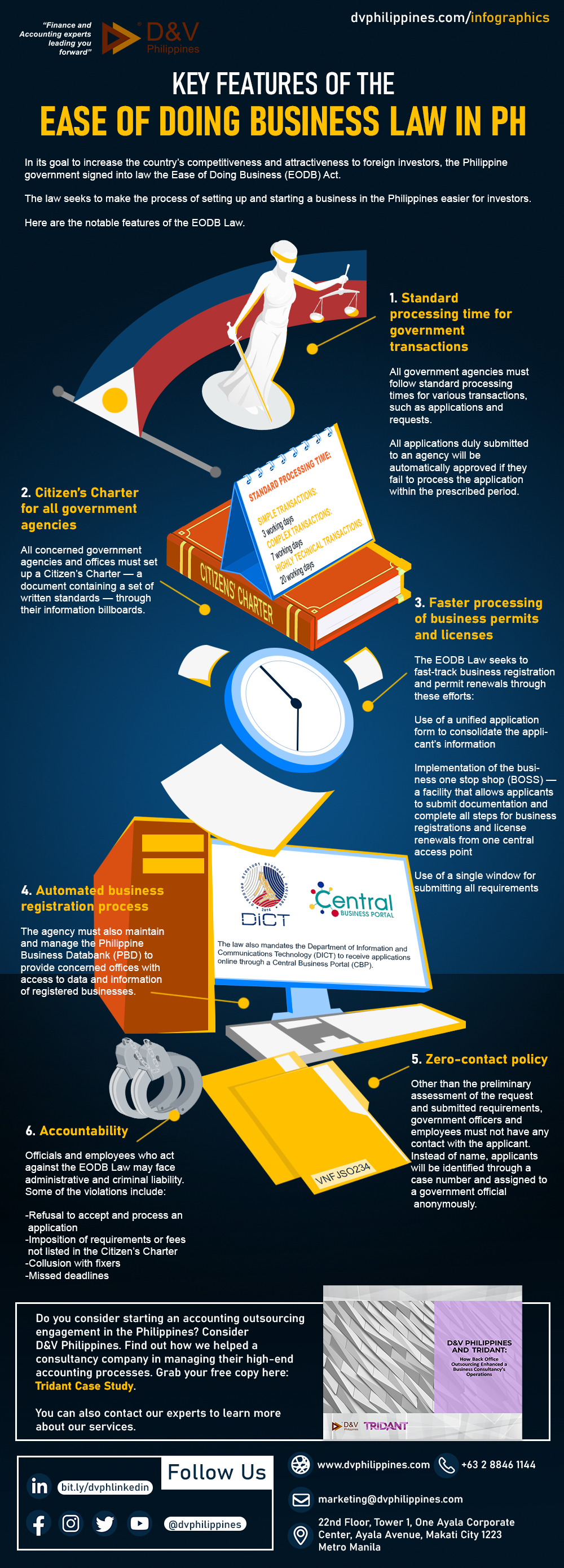Key Features of the Ease of Doing Business Law in PH
In its goal to increase the country’s competitiveness and attractiveness to foreign investors, the Philippine government signed into law the Ease of Doing Business (EODB) Act.
The law seeks to make the process of setting up and starting a business in the Philippines easier for investors.
Here are the notable features of the EODB Law.

Key features of the EODB Law
1. Standard processing time for government transactions
All government agencies must follow standard processing times for various transactions, such as applications and requests, as follows:
- Simple transactions: 3 working days
- Complex transactions: 7 working days
- Highly technical transactions: 20 working days
All applications duly submitted to an agency will be automatically approved if they fail to process the application within the prescribed period.
2. Citizen’s Charter for all government agencies
All concerned government agencies and offices must set up a Citizen’s Charter — a document containing a set of written standards — through their information billboards.
3. Faster processing of business permits and licenses
The EODB Law seeks to fast-track business registration and permit renewals through these efforts:
- Use of a unified application form to consolidate the applicant’s information
- Implementation of the business one stop shop (BOSS) — a facility that allows applicants to submit documentation and complete all steps for business registrations and license renewals from one central access point
- Use of a single window for submitting all requirements
The law also mandates the Department of Information and Communications Technology (DICT) to receive applications online through a Central Business Portal (CBP).
The agency must also maintain and manage the Philippine Business Databank (PBD) to provide concerned offices with access to data and information of registered businesses.
5. Zero-contact policy
Other than the preliminary assessment of the request and submitted requirements, government officers and employees must not have any contact with the applicant. Instead of name, applicants will be identified through a case number and assigned to a government official anonymously.
6. Accountability
Officials and employees who act against the EODB Law may face administrative and criminal liability. Some of the violations include:
- Refusal to accept and process an application
- Imposition of requirements or fees not listed in the Citizen’s Charter
- Collusion with fixers
- Missed deadlines
Do you consider starting an accounting outsourcing engagement in the Philippines? Consider D&V Philippines. Find out how we helped a consultancy company in managing their high-end accounting processes. Grab your free copy here: Tridant Case Study.
You can also contact our experts to learn more about our services.




